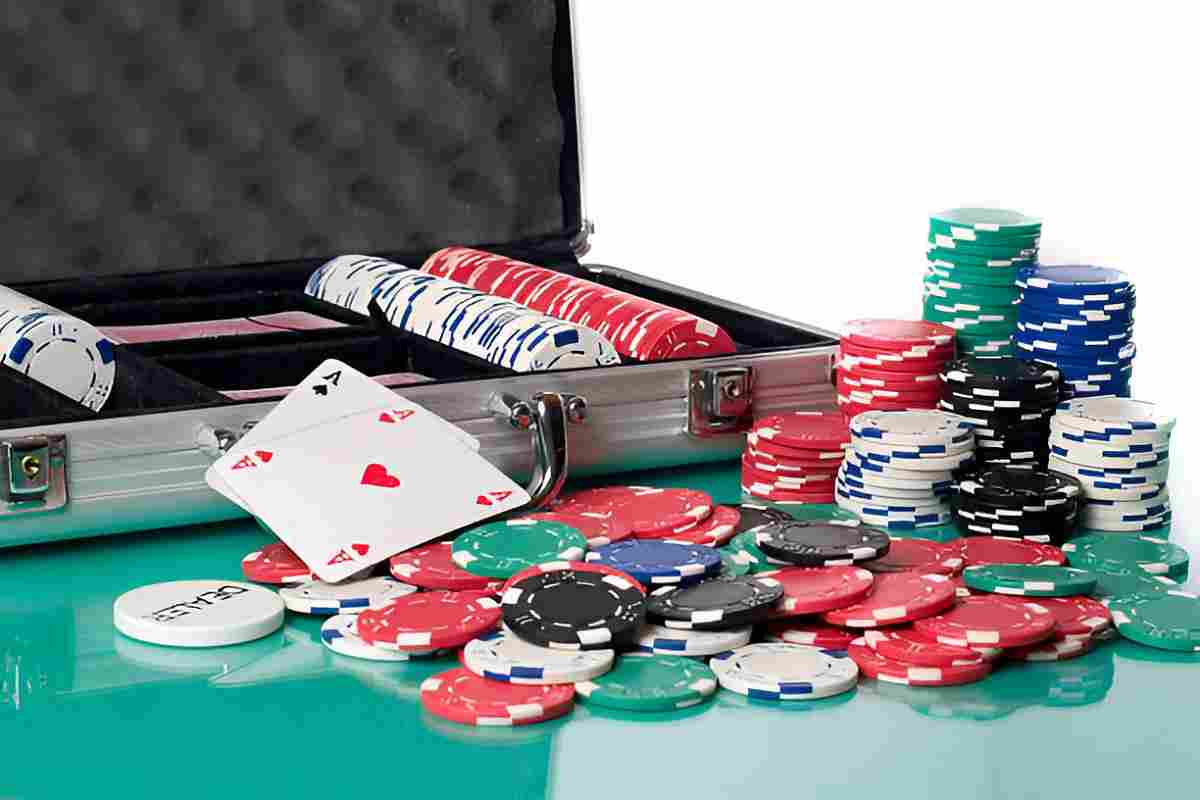Poker is a thrilling game of skill, strategy, and psychology. Whether you’re looking How to Play Poker casually with friends or step into a competitive environment, understanding the basics is crucial. This guide will take you through the fundamentals, various game types, terminology, and strategies to help you get started on your poker journey.
Understanding the Basics of Poker
At its core, poker is a card game that combines gambling, strategy, and skill. Players compete to make the best five-card hand or convince their opponents to fold. The game is typically played with a standard 52-card deck, and the objective is to win chips or money by having the best hand or by bluffing your opponents into folding.
Each poker game begins with players receiving specific numbers of cards, after which rounds of betting occur. The betting can significantly affect the outcome of the game, making it essential to understand how to manage your bankroll and read your opponents’ actions.
The Different Variants of Poker You Should Know
There are numerous variants of poker, each with unique rules and strategies. Some of the most popular include:
- Texas Hold’em: The most popular form, where players receive two hole cards and use five community cards to build the best hand.
- Omaha: Similar to Texas Hold’em, but players receive four hole cards and must use exactly two of them along with three out of five community cards.
- Seven-Card Stud: Players are dealt seven cards but do not use community cards. They build their best hand from their own cards.
- Five-Card Draw: Each player receives five cards and has the opportunity to discard and draw new ones to improve their hand.
Understanding these variants will allow you to choose the one that interests you most or is commonly played in your circles.
Essential Poker Terminology for New Players
Before jumping into a game, familiarize yourself with essential poker terminology. This will help you understand strategies and converse with other players effectively. Key terms include:
- Blinds: Forced bets that players must place before the cards are dealt.
- Flop: The first three community cards dealt in Texas Hold’em and Omaha.
- Turn: The fourth community card dealt after the flop.
- River: The fifth and final community card dealt.
- All-In: Betting all of your remaining chips.
Grasping these terms will enhance your understanding and confidence during the game.
How to Set Up a Poker Game at Home
Setting up a poker game at home can be a fun way to gather friends and enjoy an evening of entertainment. Here’s how to do it:
- Gather Materials: You’ll need a standard deck of cards, poker chips, and a suitable table.
- Choose a Variant: Decide which poker variant you want to play. Texas Hold’em is often the favorite among casual players.
- Know the Rules: Ensure all players understand the rules of the chosen variant before starting the game.
- Create a Comfortable Atmosphere: Set up seating arrangements and snacks to enhance the experience.
This preparation can lead to an enjoyable and engaging poker night with friends.
The Importance of Position in Poker Strategy
In poker, your position at the table plays a significant role in your strategy. Being “in position” refers to when you act after your opponents in a given round. This gives you the advantage of seeing how they play their hands before making yours.
Generally, earlier positions are more challenging, as you have less information. Players in later positions, however, can leverage their knowledge of earlier actions to make more informed decisions. Always consider your position when deciding whether to bet, call, raise, or fold.
Tips for Reading Your Opponents
Reading opponents is an essential skill in poker. Observing betting patterns, body language, and facial expressions can give significant insight into their confidence and hand strength. Here are some strategies to enhance your reading skills:
- Observe Betting Patterns: Take note of how much players bet or raise and their frequency of playing certain hands.
- Watch for Physical Tells: Be aware of body language signals that can indicate whether a player is nervous or confident.
- Pay Attention to Timing: Quick bets may indicate confidence, while hesitation might suggest uncertainty.
Improving your ability to read opponents can give you the upper hand and lead to more successful outcomes.
Common Mistakes Beginners Make and How to Avoid Them
As a beginner, it’s easy to fall into common traps that can be costly. Some mistakes to avoid include:
- Playing Too Many Poker Hands: It’s essential to be selective with the hands you play. Focus on strong starting hands to increase your odds of winning.
- Ignoring Position: Always be aware of your position and how it affects your strategy.
- Overvaluing Hands: Just because you have a strong hand doesn’t mean you should always bet aggressively.
Becoming aware of these pitfalls and adjusting your strategy will greatly enhance your poker performance.
Resources for Improving Your Poker Skills
To further enhance your skills, consider exploring various resources:
- Books: Titles like “The Theory of Poker” by David Sklansky offer in-depth advice.
- Online Courses: Websites such as Upswing Poker provide lessons from seasoned professionals.
- Forums: Join online poker forums to discuss strategies and learn from other players.
Utilizing these resources can help hone your strategy, situational awareness, and overall gameplay.
The Social Aspects of Poker: Etiquette and Fun
Poker is as much about social interaction as it is about the game itself. It’s vital to understand the etiquette involved:
- Be Respectful: Always treat your opponents with respect, regardless of the stakes.
- Practice Good Table Manners: Avoid discussing your cards during a hand to maintain the integrity of the game.
- Encourage a Positive Atmosphere: Keep the mood light and fun, as poker is a social event.
By following these etiquettes and enjoying the social interaction of poker, you’ll find the experience much more rewarding.
Conclusion
How to Play Poker can be a rewarding and engaging game. With a solid understanding of the basics, variations, terminology, and strategy, you’re well on your way to becoming a proficient player. Keep practicing, stay aware of your surroundings, and have fun!










